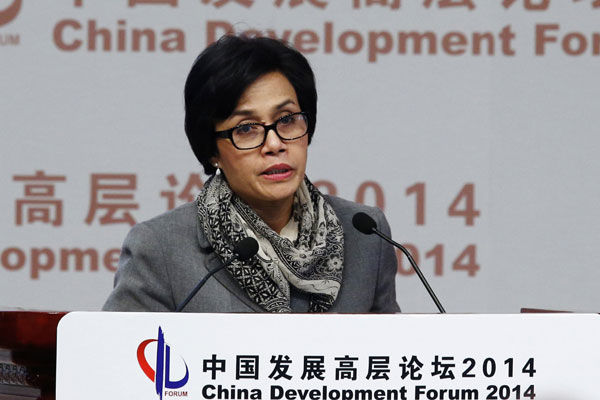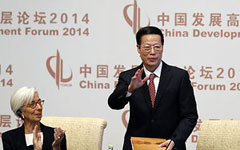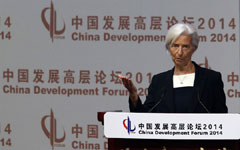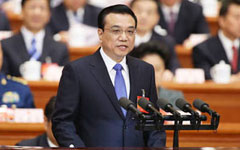|
 |
|
World Bank Managing Director Sri Mulyani Indrawati makes a speech during China Development Forum in Beijing March 23, 2014. [Photo/Agencies] |
BEIJING - China needs to manage tradeoffs arising from reform, and effective implementation is the key to success, World Bank Managing Director Sri Mulyani Indrawati said on Sunday.
This will be the first year in over five that both developed and developing countries register positive growth and developed economies are not a source of instability, she told Xinhua.
"The world economy is entering a new phase. The effects of the global financial crisis are starting to wane, and extraordinary monetary policies are being normalized," she said on Sunday when addressing the China Development Forum.
 |
 |
 |
China enjoys many economic opportunities, as the country shifts from a focus on investment and exports to domestic consumption. Many policy adjustments, including urbanization, can drive China's growth in the medium and long run, Indrawati said.
China's economy expanded 7.7 percent last year, overshooting the official target of 7.5 percent. The government announced earlier this month that the goal would be unchanged for 2014 to allow more room for reform for the long-term good.
China is also confronted by a lot of challenges in maintaining the new- model of growth at a rate in the area of 7 percent and has to adjust many policies related to land, taxes and the household registration system."These are the areas which are critical, but the Chinese leaders have recognized that. It's going to be very challenging on the implementation," said the former Indonesian finance minister.
China has already moved policies in the right direction including gradually introducing the market mechanism. "As in any reform in the world, there is always a clear tradeoff, a choice not easy for any policymaker," she added.
China needs to balance the winnings and losses of different groups. Some will share the burden of reform like the property tax levied on urbanites and some will enjoy benefits like higher agricultural land prices, she said.
China can also learn from other countries that have gone through the same process, especially developed countries, she said.
The Shanghai pilot free trade zone (FTZ) is a move "in the right direction" and should be followed up in other areas, requiring not only policy adjustments, but also implementation. "Changing policies is easy, but the most difficult thing is effective implementation," she said.
A recent survey by the American Chamber of Commerce in China showed more than 80 percent of respondents perceive China's investment environment as improving or staying the same, and some 75 percent are optimistic or slightly optimistic about their business outlook in China for the next two years.
Improvement in the business environment conducive to attracting FDI and smaller firms requires a lot of clarity, certainty on business regulations and the ability to provide the non-distorted investment playing field, she said.
Initiated in 2000, the forum is a platform for the global business and academic community to interact with Chinese decision makers and economic planners.
